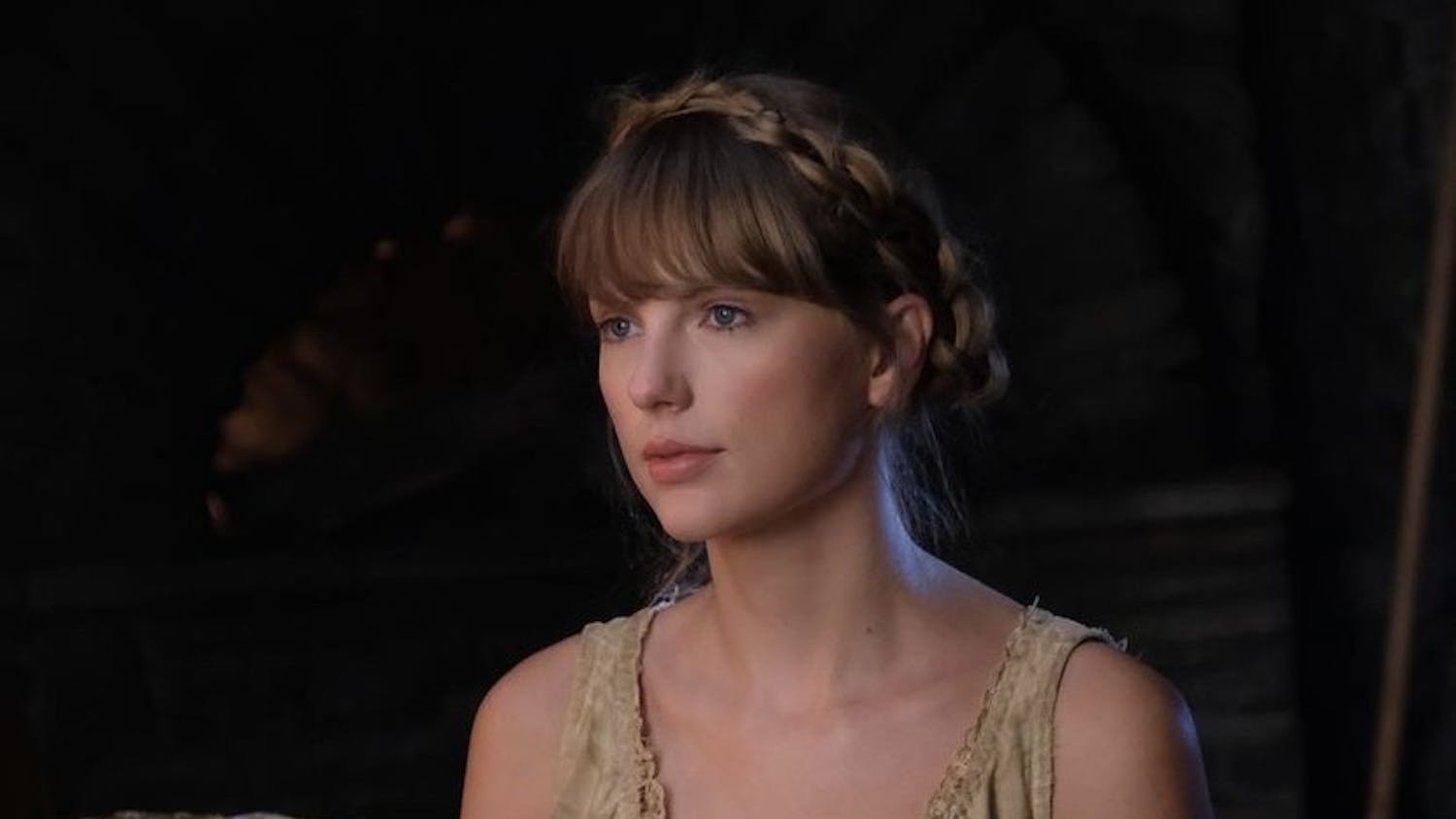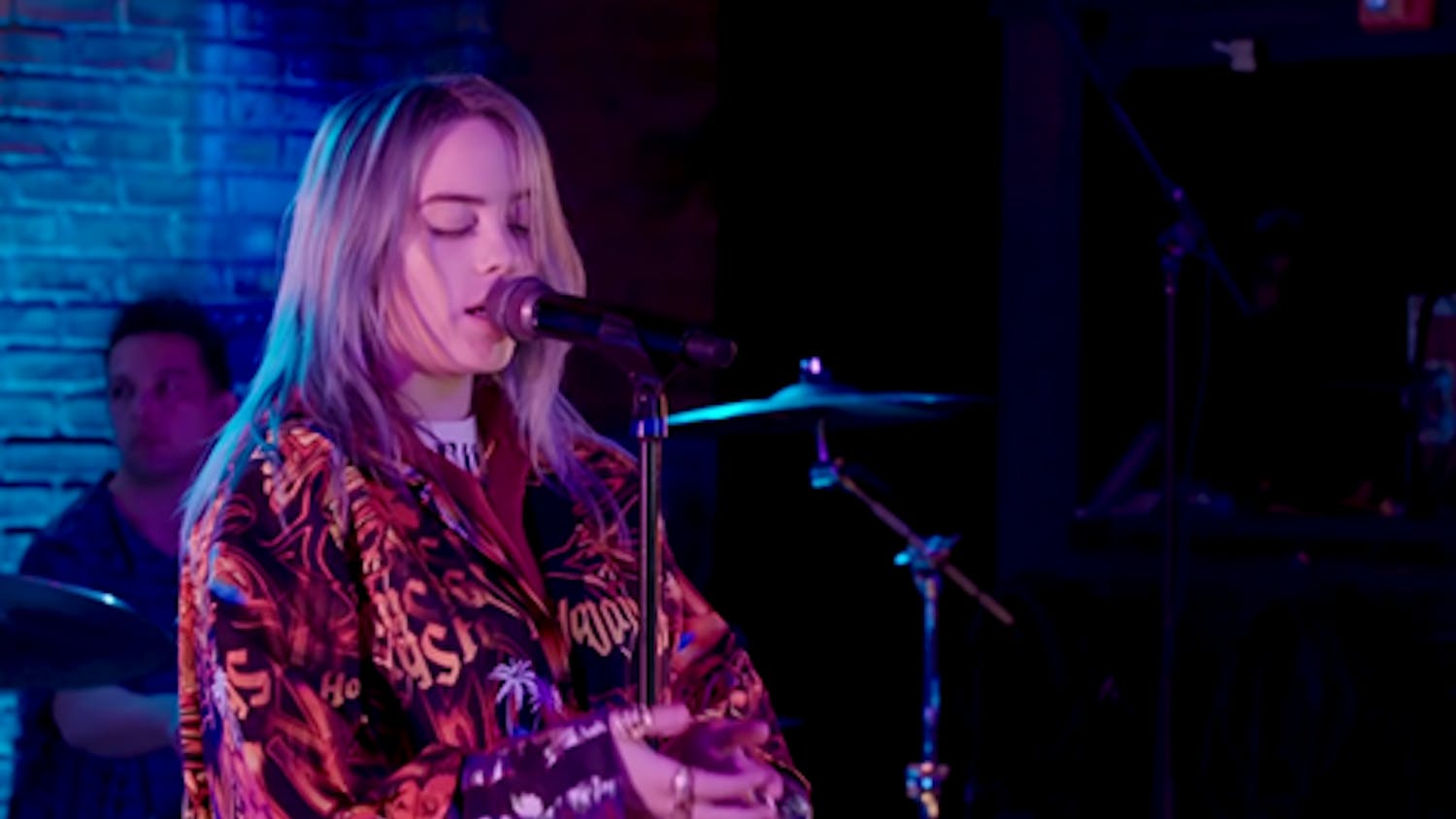For the impatient out there, here’s a single sentence summation of Paralytic Stalks, of Montreal’s latest sonic think piece: The sound of Kevin Barnes, frequent musician and perpetual thespian, traveling so far up his own ass that he has finally emerged out the other end and into the brilliant light of day.
Of Montreal’s 2007 release, Hissing Fauna, Are You the Destroyer?, is widely considered an opus of modern indie (whatever that means, anyways); a poppy, funky daytrip through the labyrinthine mindscape of a depressed and deserted man. Everyone (and I mean everyone) loved it. Skeletal Lamping and False Priest, the follow-ups, turned out to be as divisive as their predecessor was revered—possibly because they were concept albums about Barnes secretly being a black she-male? Or maybe it was something else. Who can really say?
Everything has come full circle with Paralytic Stalks though; it is a big, stuttering, sloppy mess of unquestionable genius. The album plays like a direct reaction to and against False Priest. Where the latter was a concise, R&B-fueled collection of quirky pop, Paralytic Stalks is long, bombastic and schizophrenic. The album feels like a mash-up of Skeletal Lamping’s ADD absurdity and Hissing Fauna’s pop ideals and upsettingly dark lyrics. The result is stunning, like Sufjan Steven’s The Age of Adz, but, well, actually good.
Paralytic Stalks opens with five tracks of concise noise-pop. The second track, “Spiteful Intervention,” besides almost certainly being one of the best songs anyone will hear this year, is a perfect manifesto for the rest of the album. The hook is magical (“I spend my waking hours haunting my own life/I made the one I love start crying tonight/and it felt good,” with the last bit more screamed than sung) and the song’s arrangement straddles the fine line between ridiculous and unforgettable. The warbling flute in “Dour Percentage” is equally mesmerizing and “We Will Commit Wolf Murder” has some serious musicality to back up its amazing title.
Like Hissing Fauna’s “The Past is a Grotesque Animal,” a 12-minute odyssey detailing Barnes’ Burroughs-esque metamorphosis into a booty-rocking Parliament wannabe, the fulcrum of Paralytic Stalks is “Ye, Renew the Plantiff,” nine minutes of pure bombast and corrosion that marks a sharp change in direction. There is a point two minutes in where everything finally seems to snap, when Barnes shrieks, “Oh Nina/How will I survive this Winter?/All I can think of is getting revenge/Make those fuckers pay!” Gone is the sexual pomp and circumstance, gone is the ridiculous glam-rock. All that is left is anger. And guitar solos, lots of guitar solos.
From that point onward the album becomes a pounding, abstracted mess, like Skeletal Lamping being played in the middle of a hurricane. Everything before was quirky, sure, but the back half is more Dali-prog than anything else. “Wintered Debts” marries of Montreal’s Gay Parade-era Beatles aping with rank darkness, as Barnes (in possibly his best vocal performance thusfar) trills “so much bitterness” as the seven-minute song’s constant refrain over acoustic guitar and then chiming piano, followed by haunting synthesizer waves.
“Exorcismic Breeding Knife” stands in stark contrast to everything else the band has ever done, eschewing grooves and popitude for a schizoid, Scott Walker-tinted nightmare. The song sees Barnes rambling about donkey jaws and the “economy of despair” over what sounds like “Revolution 9” crying in the background. It is the album’s only real low point, if only by virtue of it being easily the least accessible song big indie music has put out since Wilco’s “Less than You Think.” I love it, but I also love Scott Walker—so make of that what you will.
Thankfully the closer, the monstrous, the 13 minute “Authentic Pyrrhic Remission,” brings back the funk in full force, and Barnes (presumably fully exorcised) struts around the track with all the bravado and non-sequitur bliss that made the back half of Hissing Fauna such a delight. It is a stellar ending for a fantastically flawed album. It is also a solid analogy for the album as a whole; avant-garde masquerading as pop, birthing one of the most frustrating and wonderfully exciting albums I have heard in a long time.
Grade: A-





